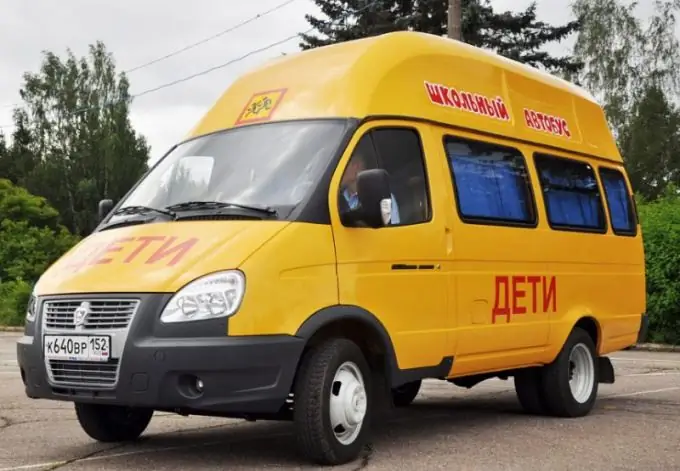- Author Horace Young young@householdfranchise.com.
- Public 2023-12-16 10:35.
- Last modified 2025-01-23 11:41.
Apparently, the deputies of the State Duma of the Russian Federation in the next session will approve bills supplementing the current rules for the transportation of children. These changes in the legislation have already been prepared by the Ministry of Communications of Russia and published on its website in the form of two draft government resolutions.

Changes should be made to the "Traffic rules" and "Passenger carriage rules". They concern legal entities and private entrepreneurs involved in organizing the transportation of children. Now the definition of "organized transportation of a group of children" will be included in the regulations. This concept will mean the carriage of at least two children under the age of 16, accompanied by an adult, in a vehicle specially designed for the transport of children. These acts and the exact requirements for drivers are established - they must have continuous work experience with cars of category "D" for at least three recent years without gross violations of traffic rules. And the buses themselves used in such transportation must be no older than ten years.
Other amendments consolidate existing norms. For example, all vehicles for transporting children must be equipped with GLONASS or GLONASS / GPS satellite navigation equipment. They must be equipped with devices for monitoring the driver's compliance with the work and rest regime, and if such flights require him to spend more than 12 hours at the wheel, it is required to have a sleeping place for rest.
The documentation of such shipments will not change very much. The car charter agreement will now include a list of children and accompanying adults, as well as a timetable for the route. If now the traffic police independently determines in which cases buses with children need to be accompanied by a patrol car, then in the new version this will be precisely spelled out in the law. The same applies to the determination of whether a medical worker should be on the bus and accompanying adults should be placed at each door. Among the innovations in this regard, the authors propose to require the mandatory presence of a certain set of food products in each bus if the route requires more than three hours of travel.






